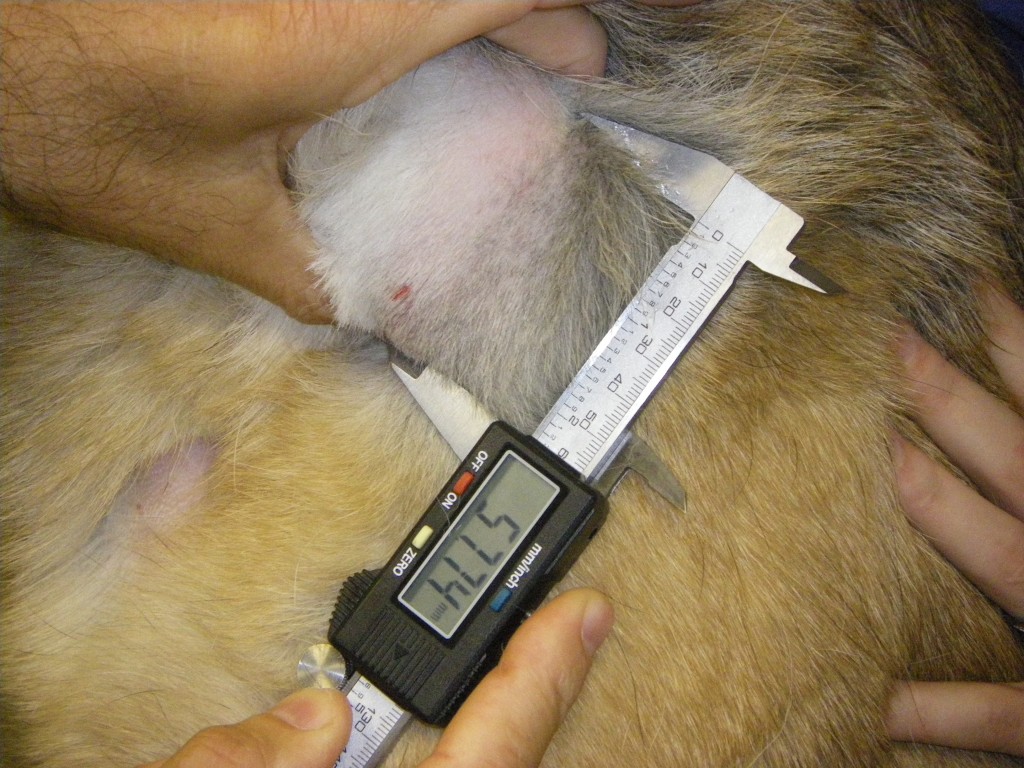Lymphoma in Dogs
Lymphoma is the third most common type of cancer in dogs. This disease, which affects the animal's lymphatic system, unfortunately has a poor prognosis.
However, treatments exist, and when the disease is diagnosed at an early stage, it is sometimes possible to significantly extend the life of the animal. In today's article, I propose you to discover everything you need to know about dog lymphoma, its diagnosis, its treatment and its prognosis.
What is dog lymphoma?
A lymphoma is a malignant tumor of the lymphatic system. Often misunderstood by the general public, the lymphatic system is a group of organs, vessels and tissues containing lymph, a substance essential to the immune system. Lymph is a transparent, even slightly yellow, biological liquid, carrying lymphocytes and relatively similar in its composition and appearance to blood plasma, of which it is a filtrate.
It circulates in the body to drain the waste products rejected by the different cells of the organism towards the lymph nodes which are responsible for filtering it and, if pathogens are detected, for producing antibodies. The spleen, lymph nodes and tonsils are considered to be the main organs of the lymphatic system, but lymph is also found throughout the dog's body.
Lymphoma is a proliferation of lymphocytes that form a tumor mass that can affect different organs of the dog's lymphatic system. Between 20 and 100 dogs out of 100,000 are diagnosed with lymphoma each year. The sites of lymphoma are the lymph nodes, tonsils and spleen, but also the liver, stomach, intestine, kidneys, lungs, nervous system, heart, eyes and skin.
It is a particularly aggressive cancer, and the life expectancy of a dog with this condition ranges from a few weeks to 6 months without treatment.
Indeed, the lymph is the main responsible for the formation of metastasis in case of cancer (whatever it is). Its role being to drain, it quickly transports the cancerous cells that it crosses through the organism, thus generating the colonization of new organs and, in fine, the generalization of the cancer. There are several types of lymphoma in dogs depending on the type of lymphocytes involved and the location of the tumor in the animal's body.
In about 80% of the cases, it is a multicentric lymphoma, a cancer of the lymph nodes already at an advanced stage of its evolution, which has generalized. In about 5% of the cases, a digestive lymphoma is observed, a tumor that affects the digestive system and the nodes that are connected to it.
Mediastinal lymphomas affecting the mediastinum (the area of the rib cage between the two lungs), skin lymphomas and, more rarely, leukemias affecting the blood cells and bone marrow are also found in dogs.

Dog Lymphoma: Symptoms
Symptoms of lymphoma are not very specific and vary from dog to dog, making diagnosis difficult and often delaying management. In the case of multicentric lymph node lymphoma, swollen lymph nodes in the dog's neck or chest can typically be detected.
The dog is often tired, down, thin and lacks appetite and drive. However, not all dogs react the same way to lymphoma, and not all dogs show the same degree of depression. As the disease progresses, the cancer often spreads to the spleen and/or liver first, and the dog may begin to drink excessively and become jaundiced.
In digestive lymphoma, digestive problems (anorexia, vomiting, diarrhea, intestinal obstruction, etc.) may be added to the non-specific symptoms. In forms of lymphoma affecting the mediastinum, respiratory problems (shortness of breath, cough, regurgitation, etc.) are often observed.
Causes of lymphoma in dogs
As with most cancers, the causes of lymphoma are not well understood, although some risk factors are suspected. While lymphoma can affect dogs of any age and breed, medium and giant breeds are over-represented. Boxers, Bullmastiffs and Rottweilers are also thought to have a genetic predisposition.
Lymphoma also occurs more frequently in dogs whose immune systems are weakened by other diseases or external factors (diet, sedentary lifestyle, stress, etc.). Finally, older dogs are much more affected than younger dogs, even though juvenile cases do exist.
As with humans, there is a growing trend to point to the involvement of our modern lifestyles in the development of cancer in dogs. A dog living in an industrial environment, near polluted sites, magnetic fields or in contact with chemical products would present a greater risk of suffering from lymphoma.
Moreover, if the dog's diet is not directly implicated in the development of lymphoma, it should be noted that it plays a crucial role in the health of the dog's immune system.

Treatment and prognosis of canine lymphoma
The prognosis of canine lymphoma depends on the treatment options and the stage of the disease at the time of diagnosis. While the disease can rarely be cured, it can be treated to control the symptoms and prolong the dog's life without suffering.
Typical treatment for cancer includes chemotherapy, which provides an average of 10 to 18 months of relief and often results in complete resolution of symptoms. While many owners fear the side effects of chemotherapy on their pets, it should be noted that these are now well controlled and allow the pet to live comfortably during treatment.
When chemotherapy is not an option, due to its high cost or limitations - not all veterinary facilities are able to offer it - corticosteroid therapy (using glucocorticoids) can be used to reduce the symptoms of the disease and slow its progression. On average, dogs treated with steroids alone survive an additional 2-3 months, and this treatment is the traditional palliative solution for lymphoma.
Finally, when lymphoma is diagnosed at a very early stage of development and is still localized, it may be possible to surgically remove the tumor. However, this treatment does not usually prevent recurrences, as lymphoma has the particularity of metastasizing rapidly, often long before it is diagnosed.
FAQ
My dog has lymphoma, what should I do?
If you think your dog may have lymphoma, it is essential to take him to a veterinarian who can make a reliable diagnosis and determine the stage of the disease. Depending on the stage and type of lymphoma, the veterinarian will be able to offer different treatment options to control the symptoms of the disease and prolong your dog's life as long as possible in good conditions.
How do I know if my dog has lymphoma?
The symptoms of lymphoma are not very specific, so veterinary examinations are essential to diagnose this disease. Exacerbated fatigue, weight loss, jaundice, excessive drinking and/or the presence of masses on or under the skin of your dog should alert you, especially in an older animal.
Can dog lymphoma be cured?
Complete remission of lymphoma in dogs is very rare, and it is more commonly thought that the disease cannot be cured. However, lymphoma can be treated to eliminate the symptoms it causes in your dog and increase his or her life span.
How to prevent dog lymphoma?
The causes of canine lymphoma are not known, but certain risk factors have been identified. These include exposure to magnetic fields, chemicals, toxic fumes, pollution, and a lifestyle that is detrimental to the health of the dog's immune system.
By reducing your dog's exposure to these risk factors, you can reduce his chances of developing lymphatic cancer. Dog lymphoma is an aggressive cancer that unfortunately does not offer a good prognosis for our four-legged friends.
Fortunately, it occurs most frequently in older dogs and can be treated to extend their life span and allow them to live a normal, or near normal, life expectancy. In addition, regular check-ups with your veterinarian can help diagnose the disease early, giving your pet better management of its symptoms.

